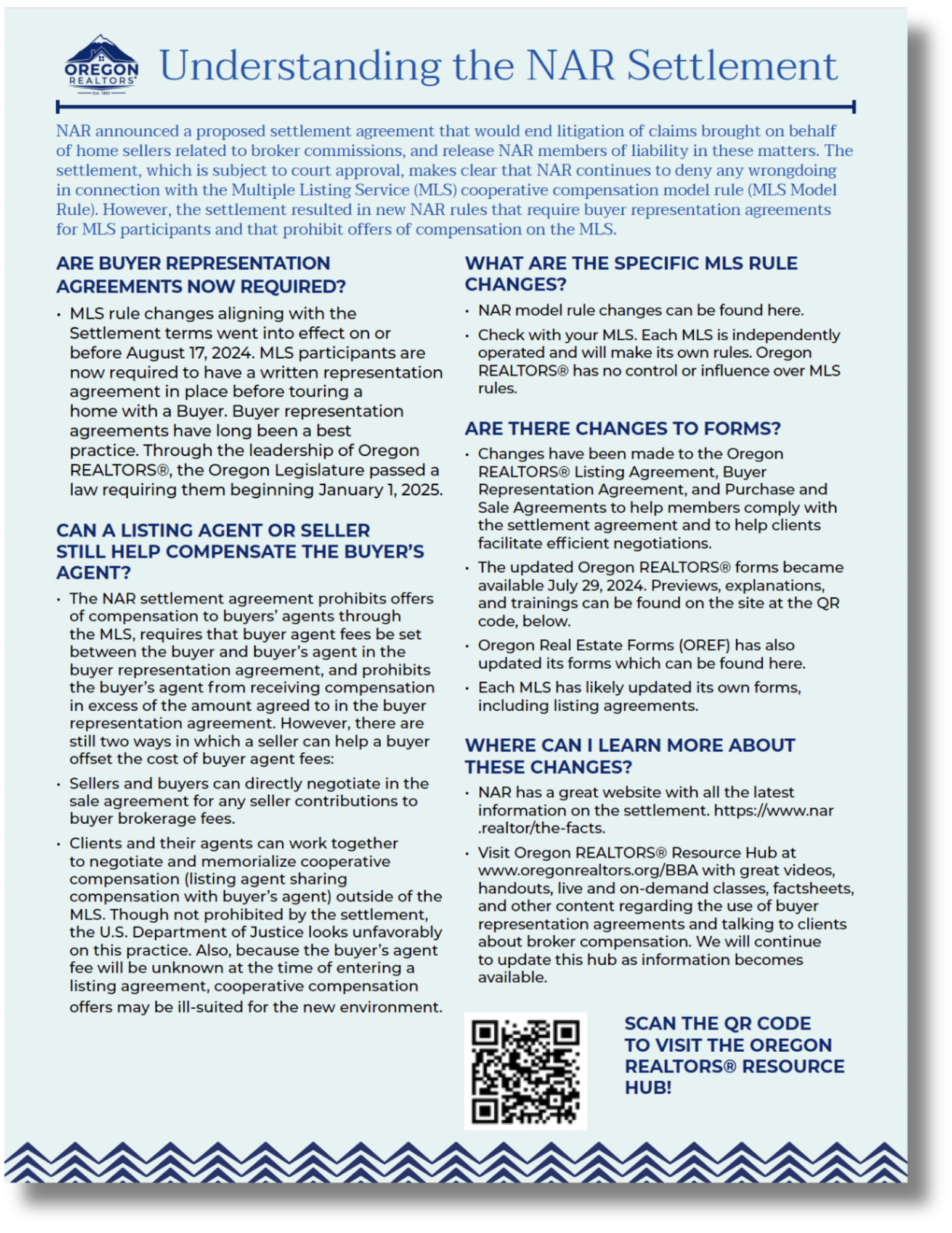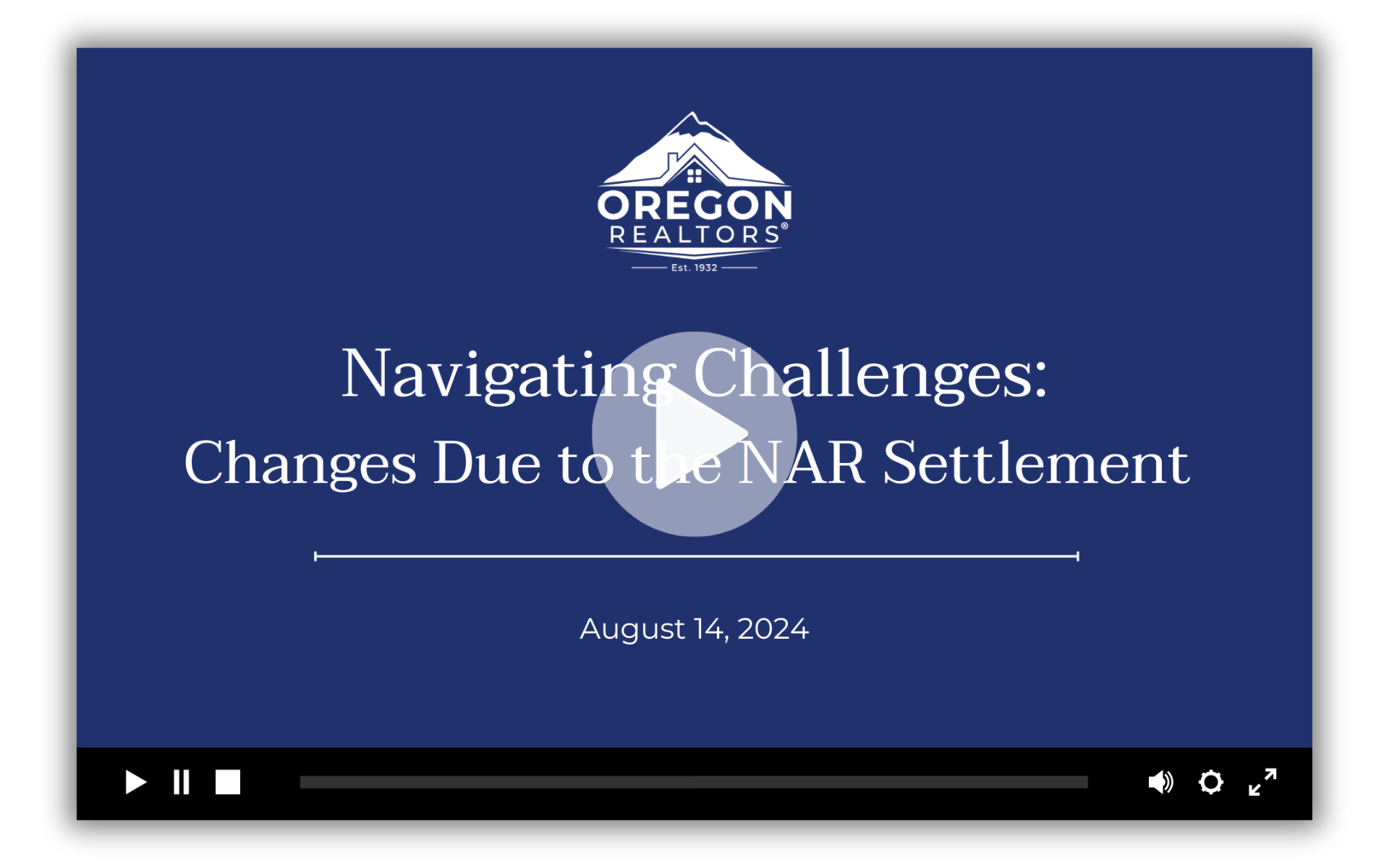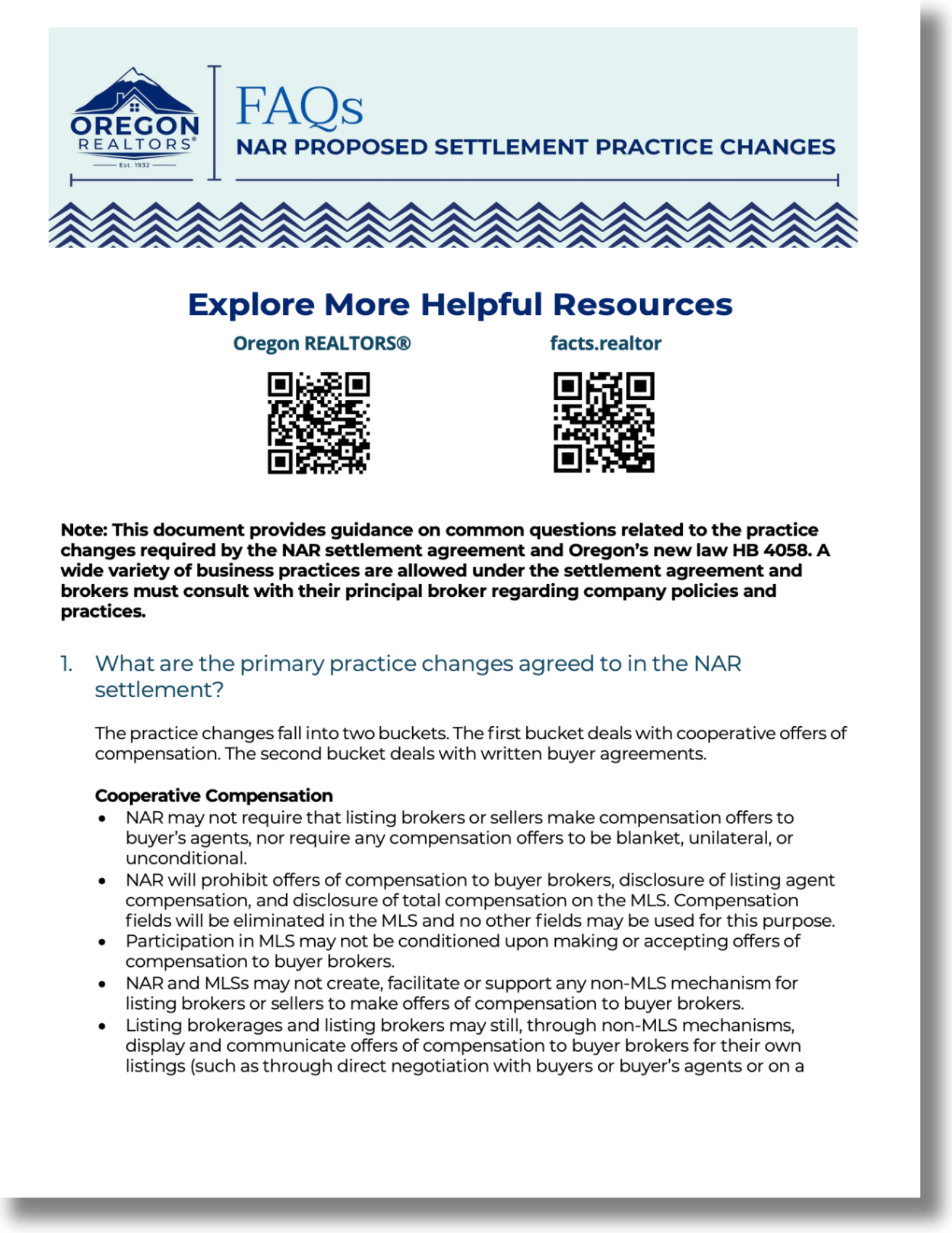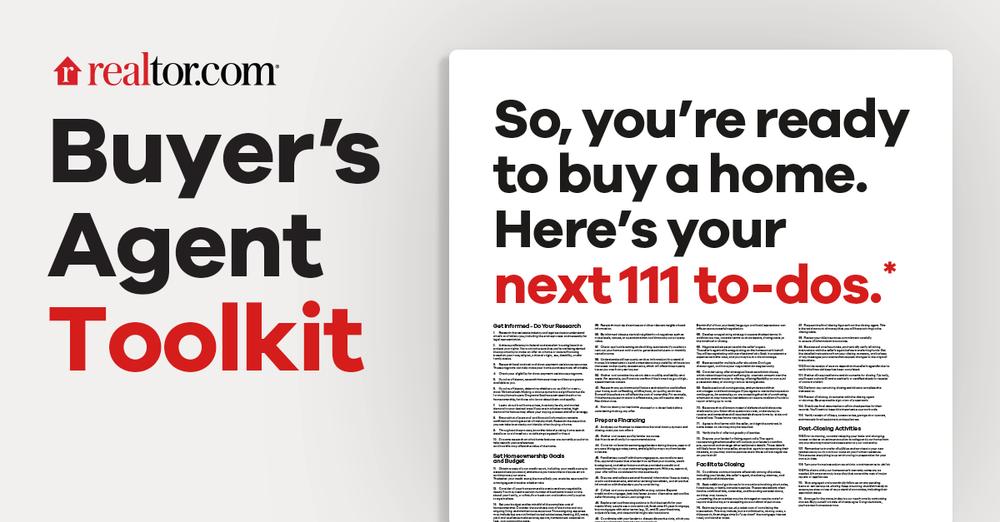Share
RISK MANAGEMENT
- Avoiding Legal Pitfalls
- Buyer Representation & NAR Litigation Hub
- Forms Library
- Legal Hotline
- Legal Q&A Archives
- Form Clause Library
- Buyer/Seller Advisories
- Oregon’s New Advertising Rules: What are the Key Changes?
- Multiple Offer Situations
- Selling Tenant-Occupied Homes
- Evictions Guidance
- Love Letter Guidance
Buyer Representation & NAR Litigation Hub

With the proposed settlement from NAR and a new Oregon law, Buyer Representation Agreements and client conversations about real estate broker compensation are more important than ever. We’ve put together this resource hub so you’ll know the facts about buyer representation agreements, learn what the proposed settlement says about cooperative compensation, and have access to tools for transparent and informative discussions with your clients. Oregon REALTORS® and Oregon REALTORS® Forms will empower you with knowledge and help your business thrive.
Buyer Representation & NAR Litigation Resource Hub Intro Video

Updated forms are available in all transaction platforms. You can access previews, descriptions and trainings, or download forms from your favorite forms provider.
It’s here! The required practice changes required by NAR’s settlement are going into effect. Are you ready?
Required buyer representation agreements and not having cooperative compensation offers in your MLSs might sound scary, but you already have the skills to successfully navigate this new normal—you just need to know how (and when) to apply those skills, and we can help with that.
Check out our webinar featuring a panel of experts to get your last-minute questions answered, and learn strategies for:
- Negotiating buyer representation agreements for years,
- Processes to have in place when dealing with buyers and sellers
- Talking to clients about agent compensation.

Visit facts.realtor for the Latest Updates

Download the “Understanding the NAR Settlement” Flyer
View the NAR Settlement FAQs
Accredited Buyers Representative®

This course covers how you can promote yourself in the buyer’s market as a buyer’s rep and grow your business using ABR® designee member benefits. Learn how to create a buyer representation agreement, conduct a successful buyer consultation, and communicate your value to clients. Understand every piece of the transaction puzzle, including the search-showing-selection process, offers and negotiations, appraisals, and closing on the property.
Oregon REALTORS® Commitment to Antitrust Compliance
Oregon REALTORS® is a not-for-profit trade association devoted to improving business conditions of the real estate industry. Oregon REALTORS® meetings and events often include real estate professionals and other industry stakeholders who compete with each other or work for competing businesses. Oregon REALTORS® is committed to conducting all meetings and events in a professional, ethical, and lawful manner, including in adherence to all antitrust laws. To that end, the topics for this meeting will focus on advancing the interests of real estate professionals and consumers of real estate services, increasing competition, reducing risk for all parties involved in real estate transactions, and sharing insights on business best practices. The following discussion topics are always prohibited:
- Fixing, controlling, recommending, or suggesting the commissions or fees charged for real estate brokerage services
- Fixing, controlling, recommending, or suggesting the cooperative compensation offered by listing brokers to potential cooperating brokers
- Disparagement of competitors
- Limiting product or service offerings
- Allocating geographical territory or customers
- Refusing to deal with any market participants
Any discussion inconsistent with this policy will not be tolerated.
Do You Have Feedback?
Do you have any comments or suggestions on content that would be helpful for this resource hub? Please email us at info@oregonrealtors.org











